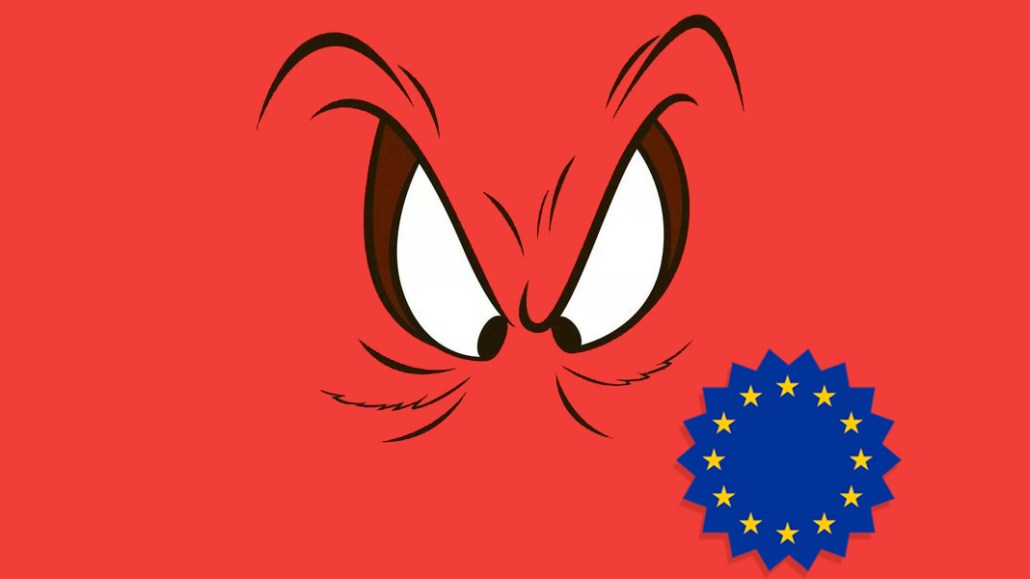Secure your place at the Digiday Media Buying Summit in Nashville, March 2-4
DSPs grapple with whether to bid on impressions with no GDPR consent signals

Demand-side ad tech vendors are struggling to decide whether or not to bid on ad impressions depending on what user-consent information is attached to them.
Part of the problem is that approaches to compliance for the General Data Protection Regulation vary not just according to publisher choice and business model but also by country.
Case in point: German publishers have gone all in on legitimate interest, rather than the stricter consent-based approach. Meanwhile publishers in France and the U.K. have adopted both methods, though an increasing number of publishers in both countries are now either adopting or inquiring after consent-management platforms so they can pass back consent signals to their programmatic partners.
But the majority of publishers are still relying on legitimate interest.
Jakob Bak, chief technology officer and co-founder of Adform, said, “A significant chunk of publishers, particularly in Germany, are relying on legitimate interest, in a manner that many U.S. companies, probably including Google, are not too happy with. That’s one of the biggest concerns many vendors are voicing at the moment.”
Part of this concern is that the onus is on demand-side vendors to make the call on whether they will bid for an impression if there is a consent signal attached or not. If a publisher has a consent-management platform, it is easier (in theory) for partners in the digital ad supply chain to see if consent has been given or not and bid accordingly. If a publisher has adopted a legitimate-interest approach, that consent signal simply doesn’t exist.
“A vendor wants to ensure they are in compliance,” said Brian Kane, chief operating officer and co-founder of ad tech vendor Sourcepoint. “But if they bid on an impression from a European citizen and they win that impression — that vendor is using personalized data to figure out what ads can be served, but with no indication to show if the citizen has consented — that puts the vendor in a precarious situation.”
Whether or not the DSP decides to bid, will ultimately come down to their own GDPR compliance strategy, and whether they want to take the risk. For now, there are many vendors who still buy impressions without valid consent strings. With no major fines yet issued from regulators, the industry is in somewhat of a grace period. But experts are predicting that in time, buyers will become more discerning, and the value of an ad impression will fluctuate depending on whether or not there is user consent information attached to it.
“We’ll see buyers pull back on buying ‘non-consent’ or ‘no consent’ string impressions,” said another ad tech executive who spoke on condition of anonymity. “We’re hearing from buyers that their willingness to buy those impressions [without consent signals] will be reduced over time.”
In France, a similar pattern has emerged. Ad tech companies like supply-side platform Smart have reported that they are seeing bid density spike whenever an ad impression has consent information attached to it.
An added complication is that not all publishers have signed up to the Interactive Advertising Bureau’s Transparency and Consent framework, which doesn’t cater for legitimate interest. Meanwhile vendors themselves are not convinced every other vendor in the digital ad supply chain is interpreting consent signals correctly yet either.
But if a publisher has implemented a legitimate-interest GDPR policy and a vendor has taken a consent-based approach, both potentially stand to lose revenue, according to Kane.
“It has made things more complex working internationally,” added Kane. “There is a new set of decisions everyone has to take into account: If you’re a vendor, you must decide if you will integrate with the IAB framework, or ingest the signals correctly from a technical perspective. Then once you ingest the signals, you have to figure out if you want to buy impressions if there is no consent signal from Europe. I wouldn’t say it has paralyzed the industry — like all things, we’ll figure it out. But it has added a set of decisions to the mix and challenges that need to be overcome.”
More in Media

Digiday+ Research: Dow Jones, Business Insider and other publishers on AI-driven search
This report explores how publishers are navigating search as AI reshapes how people access information and how publishers monetize content.

In Graphic Detail: AI licensing deals, protection measures aren’t slowing web scraping
AI bots are increasingly mining publisher content, with new data showing publishers are losing the traffic battle even as demand grows.

In Graphic Detail: The scale of the challenge facing publishers, politicians eager to damage Google’s adland dominance
Last year was a blowout ad revenue year for Google, despite challenges from several quarters.







